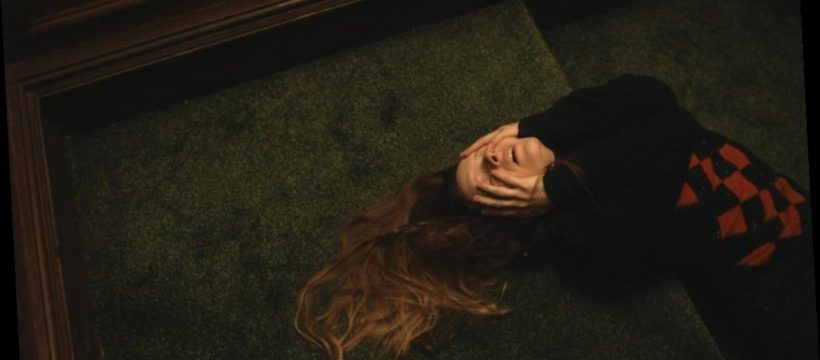When all 1,180 screens across Cineworld and Picturehouse’s cinemas in the U.K. and Ireland shutter from Friday, they will wipe out a third of potential box office revenue for distributors. On top of Odeon’s plans for weekend-only operations in a quarter of its movie theaters, the outlook may appear bleak for cinema-going in the U.K. But as the dust settles, numerous distributors tell Variety that the exhibition crisis won’t hinder their release plans, even though the temporary loss of Cineworld will make an undeniable dent in revenues.
“In the past three months, we’ve been incredibly proactive in the theatrical space and released six films that have a combined gross box office of over £2.5 million [$3.2 million],” Rupert Preston, CEO of Vertigo Releasing, told Variety. “Cineworld and Picturehouse have accounted for over 30% of that gross. So clearly, without them, there is a big hole to fill going forward.”
“As an industry, it’s sad to see cinemas closing due to restrictions and lack of blockbusters, even though they’ve done so much work to adhere to guidelines and there are completed films ready for release,” Eve Gabereau, founder and CEO of distributor Modern Films, told Variety. Ultimately, closing cinemas and plucking key new films out of the schedule sends “a negative message to audiences that it’s probably best to stay home.”
The cinema runs for Modern titles such as Berlin Film Festival winner “White Riot” will be truncated as Picturehouse cinemas close. The move has also scuppered future release plans, as the company was in advanced discussions for other titles in the coming months. Similarly, independent documentary distributor Dartmouth Films had booked the Picturehouse circuit for BFI London Film Festival title “One Man and His Shoes.”
“It was naturally disappointing to hear not only that their sites would be shutting down, but also that their staff were only first learning about it along with us and everyone else,” Dartmouth distribution and sales manager Wayne D’Cruz told Variety.
Meanwhile, a key period for the U.K. box office is the school half-term holiday coming up at the end of October. “Our half-term release, the family sci-fi film ‘Max Winslow and the House of Secrets,’ will be going out on fewer screens now and the number of shows might be compromised where cinemas are tightening their days and hours of operation,” admits Jane Smith, marketing director for distributor Munro Films.
While, understandably, there’s a palpable sense of disappointment across the independent distribution sector at the dramatic reduction in screens, on a practical level, most are trying to make the most of the screens that are left. Studiocanal, for example, is going ahead with its release of Sitges title “Saint Maud” on Oct. 9, even without crucial Picturehouse screens, which generally program more indie, arthouse fare. A company representative told Variety that “our focus this week is very much on booking ‘Saint Maud’ into every available cinema across the U.K.”
“We have a duty of care to our partners in exhibition to help them through this crisis and see the opportunity in doing so,” said Hamish Moseley, managing director of Altitude Film Distribution, which released Russell Crowe thriller “Unhinged” in late July and has a slew of titles announced through to Christmas, including “Totally Under Control” and “Crock of Gold: A Few Rounds with Shane MacGowan.”
Meanwhile, James Javes, head of sales for Signature Entertainment, cites the recent box office success of their titles “Dreambuilders,” which is set to break £500K ($646,000) and “The Elfkins,” which is on track to reach £200K ($258,000) in its first week, to demonstrate a “huge appetite from U.K. moviegoers despite a lack of the major blockbuster titles.”
Digital destinies?
While cinemas in Ireland are closed for three weeks as the country deals with a second wave of coronavirus, there is no news yet of a similar fate for their U.K. counterparts. Should such a scenario arise, however, distributors know the ropes thanks to the first lockdown. The obvious, and proven, way forward is delivering titles via digital means.
“That formula is now proven to work with audiences and consumers — it’s what people expect and they want that choice of how and when to see a film,” said Vertigo’s Preston.
One of the online success stories during lockdown was Curzon Home Cinema. “There is a tendency in a crisis to batten down the hatches but we have to continue to find creative ways of working and continuing to deliver new films that people crave and which nourishes our soul,” Curzon CEO Philip Knatchbull told Variety. “A collective hesitancy to keep moving forward will further erode the fragile ecosystem that cinema relies on.”
“It’s not a matter of putting films online and seeing what happens. The model requires much work and audience development, as well as content that people want to see and talk about,” said Modern Films’ Gabereau, who wants to solidify the ‘beyond cinema walls’ model further where digital sales are recorded and reported alongside traditional box office.
Considering a potential 2021 scenario, where a vaccine has been found and audiences return to fully open cinemas, there could also be the problem of an over-abundance of films.
“One of the reasons for sticking to our guns on our 2020 releases was to avoid getting lost in a potential glut of product next year,” said Munro Films’ Smith. “It’s impossible to say what will happen and we wouldn’t be surprised if titles kept moving back or if some titles opt out of a theatrical release altogether.”
But even if there is a surfeit of huge studio movies dominating the theatrical market, says Vertigo’s Preston, “what I do know is that there will still be a lot of people wanting to watch quality independent movies delivered to them in new and innovative ways — and that is what we do and will continue to do. Just more so.”
Source: Read Full Article
